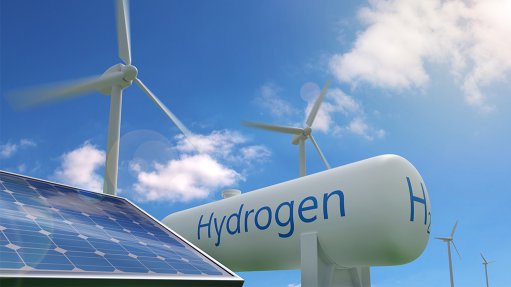Furnace vacuum installer observes wet-to-dry trend
Vacuum furnaces are increasingly being upgraded to use dry pumps, says vacuum solutions provider Oerlikon Leybold Vacuum senior process industries marketing manager Uwe Zöllig.
Vacuum pumps are necessary to provide the clean environment inside furnaces, explains Zöllig. Only vacuum technology can ensure that treated parts and materials are unaffected by surrounding gases, he adds.
The wet-to-dry trend, noted by Oerlikon, typically involves upgrading older, oil-sealed rotary piston pumps to dry screw pumps, says Zöllig, adding that this is especially helpful in more demanding applications.
In vacuum furnace applications, dry-compressing screw pumps are reliable even in rugged conditions. They offer a higher degree of robustness and insensitivity in environments containing dust, particles, and vapours at significantly lower maintenance cost, he states.
Further, robust modern vacuum products excel because they use less power, says Zöllig.
Reducing energy consumption has become a focus area when developing modern screw vacuum pumps, with their level of electricity use almost similar to that of established oil-sealed rotary vane pumps or rotary piston pumps.
Currently, dry screw pumps use only about 70% of the energy used by their predecessors of ten years ago, he notes.
Further, even old technologies, such as diffusion pumps, are now applied using modern electronics, such as improved control systems, reducing their power demands by more than 30%, states Zöllig.
For particularly demanding applications, such as brazing or nitriding dry screw pumps, Oerlikon Leybold’s Dryvac pumps are the new standard, he says.
In a typical furnace, most pumps with a flow rate of 600 m3/h require an operating pressure below 1 mbar at an output of about 10 kW.
Owing to an optimised rotor design, an innovative drive concept and the installation of a perfectly adapted frequency converter, the screw pumps from the Dryvac series deliver a reliable performance using less energy.
The Dryvac DV650 has an energy consumption of 6.9 kW at 1 mbar and uses less power than a comparable rotary vane pump, says Zöllig.
He adds that the Dryvac’s built-in frequency converter also offers greater process control. Many process steps do not require the full pumping speed, particularly when operating under more demanding pressure ratios, such as carburising.
Further, Oerlikon Leybold’s Screwline range of dry screw pumps offers the best capabilities for harsh applications such as carburising or sintering, while its offering of turbomolecular and cryogenic pumps is suitable for use in niche applications of heat treatment, where an oil-free, high vacuum is demanded.
For less demanding applications, such as tempering or hardening, oil-sealed rotary vane pumps are still suitable, notes Zöllig.
Although Oerlikon Leybold Vacuum is regularly delivering vacuum products to furnace manufacturers worldwide, Zöllig comments, the vacuum furnace market is currently rather slow.
“We continuously work on product improvements and our customers can expect that there will be developments in the future, especially in dry pump technology,” he says.
Modular Vacuum Systems
In modern steel degassing, innovative mechanical pump systems are being used instead of the previously popular energy-intensive steam ejector systems, as they enable operators to reduce operating costs and emissions.
The modular concept of Oerlikon Leybold pumps for vacuum technology in steel degassing systems has proven its merits, states the company. Customers, such as Primetals and Inteco, lately ordered mechanical vacuum systems for steel degassing plants for end-user clients in Mexico and China.
Meanwhile, to meet the growing requirements for explosion protection, some of these steel degassing projects have been supplied with Atex-certified degassing modules, Oerlikon explains.
Within the modules, Oerlikon uses only two vacuum pumps – the Ruvac WH7000 roots pump and the Dryvac DV1200 screw-type vacuum pump – which were developed in-house and are manu- factured at its plant in Cologne, Germany.
These pumps are the most advanced versions of Oerlikon Leybold’s pump types, developed for use in demanding applications, the company comments.
Using only two types of pump, which are readily available worldwide, simplifies service and keeping spare parts in stock for the end-user.
Modern pump technology is robust, reliable, and environmentally friendly, thereby reducing operating costs; thus, the systems are meeting the increasing requirements of steel manufacturers to produce high-quality steel with lower emissions, at lower costs, Oerlikon concludes.
Article Enquiry
Email Article
Save Article
Feedback
To advertise email advertising@creamermedia.co.za or click here
Press Office
Announcements
What's On
Subscribe to improve your user experience...
Option 1 (equivalent of R125 a month):
Receive a weekly copy of Creamer Media's Engineering News & Mining Weekly magazine
(print copy for those in South Africa and e-magazine for those outside of South Africa)
Receive daily email newsletters
Access to full search results
Access archive of magazine back copies
Access to Projects in Progress
Access to ONE Research Report of your choice in PDF format
Option 2 (equivalent of R375 a month):
All benefits from Option 1
PLUS
Access to Creamer Media's Research Channel Africa for ALL Research Reports, in PDF format, on various industrial and mining sectors
including Electricity; Water; Energy Transition; Hydrogen; Roads, Rail and Ports; Coal; Gold; Platinum; Battery Metals; etc.
Already a subscriber?
Forgotten your password?
Receive weekly copy of Creamer Media's Engineering News & Mining Weekly magazine (print copy for those in South Africa and e-magazine for those outside of South Africa)
➕
Recieve daily email newsletters
➕
Access to full search results
➕
Access archive of magazine back copies
➕
Access to Projects in Progress
➕
Access to ONE Research Report of your choice in PDF format
RESEARCH CHANNEL AFRICA
R4500 (equivalent of R375 a month)
SUBSCRIBEAll benefits from Option 1
➕
Access to Creamer Media's Research Channel Africa for ALL Research Reports on various industrial and mining sectors, in PDF format, including on:
Electricity
➕
Water
➕
Energy Transition
➕
Hydrogen
➕
Roads, Rail and Ports
➕
Coal
➕
Gold
➕
Platinum
➕
Battery Metals
➕
etc.
Receive all benefits from Option 1 or Option 2 delivered to numerous people at your company
➕
Multiple User names and Passwords for simultaneous log-ins
➕
Intranet integration access to all in your organisation


















